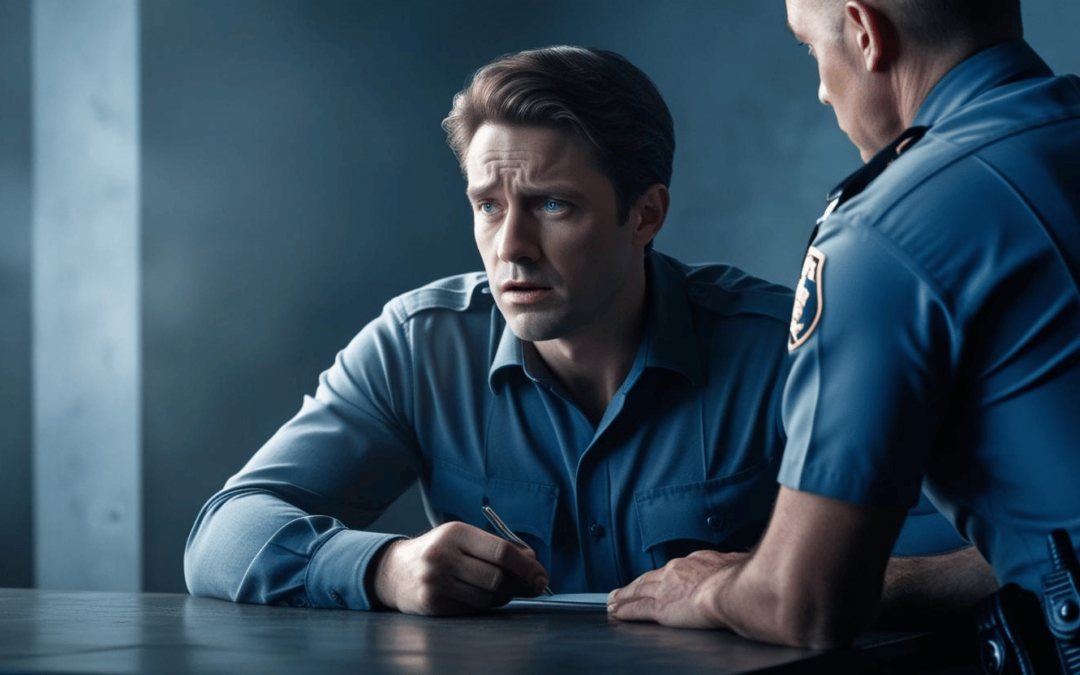Introduction
What happens when a witness lies? What happens when a single person makes a false accusation against someone else? Tragically, that one lie can be enough to send an innocent person to jail.
The testimony of a single lying witness can lead to someone being arrested, formally charged, and even convicted of a crime they did not commit. We’ll look at real-life examples, the psychology behind false accusations, legal vulnerabilities, and what can be done to prevent these injustices.
The Power of One Person’s Word
In many criminal cases, witness testimony plays a critical role. While we often think of hard evidence like fingerprints, surveillance footage, or DNA as the pillars of a criminal case, in reality, many cases hinge on statements made by people.
It only takes one person to say, “He did it,” to initiate a criminal investigation. Their claim may quickly lead to the arrest of an innocent individual. There is no legal requirement that the police investigate the allegation beyond taking the statement. Such an arrest is perfectly legal even if there are strong reasons to doubt the truth of the accusation.
Likewise, while a prosecutor can choose not to file such a charge, it is perfectly legal to file charges based solely on the word of one person even if there are reasons to be skeptical of the accusation. Lastly, if twelve jurors believe the accuser beyond a reasonable doubt, one questionable accusation from one person is enough to convict you and send you to prison.
To understand the logic here, imagine you are robbed at gunpoint in an alley, but the robber turns out to be someone you knew well in high school. You know exactly who the culprit is and can identify him. The police can go arrest him and, if a jury believes you beyond a reasonable doubt, the robber can be convicted and sent to prison with no other evidence.
But what happens when it’s just a lying witness?
False Accusations Are Real
Whether we are talking about a lying witness, mistaken identity, or bad police work, false accusations are shockingly common compared to most people’s assumptions. We need not look any further than DNA exonerations to know that our justice system simply gets it wrong sometimes.
Brian Banks Case (2002, exonerated 2012)
High school football star Brian Banks was falsely accused of rape by a classmate. He served over 5 years in prison before the accuser admitted on tape she had lied. His conviction was overturned.
In 2011, Betsy Faria was found stabbed to death in her Troy, Missouri home. Her husband, Russ Faria, was convicted despite having a solid alibi and no physical evidence linking him to the crime. The case was focused on him in large part to a lying witness named Pam Hupp, who did everything she could to point the police at Mr. Faria.
Suspicion should have focused on Pam Hupp, Betsy’s friend and last known person to see her alive. Just days earlier, Betsy had changed her life insurance beneficiary to Hupp, who later gave conflicting statements. Authorities largely ignored these red flags.
Russ spent over 3 years in jail before being exonerated in 2015.
Why Do People Lie?
There are many reasons why someone becomes a lying witness:
- Revenge or spite
- Jealousy or anger after a breakup
- Gaining an advantage in custody battles
- Seeking attention or sympathy
- Mental illness
- covering for their own crimes
- appeasing prosecutors or police and/or to lessen their sentence
The motivations vary, but the effect is always harmful. The accused person’s reputation, freedom, career, and family life can all be destroyed. Even if the accusation is later proven false, the damage is often irreversible.
The Legal Vulnerabilities
The criminal justice system is designed to protect the innocent, but it has significant weaknesses when it comes to lying witnesses:
- Probable Cause Threshold: Police need only a low threshold of evidence to make an arrest. A single, credible-sounding witness can meet that standard.
- Prosecutorial Discretion: Prosecutors decide whether to file charges. If they believe the witness is credible, they may proceed even without physical evidence and even though others may not find the witness credible.
- Jury Psychology: Jurors often trust eyewitnesses and victims, especially if they appear emotional or consistent.
- Lack of Resources for Defense: Innocent defendants often can’t afford to challenge false accusations with their own investigations or expert witnesses.
Perjury Is Hard to Prove
You might think lying under oath would carry serious consequences. In theory, it does. Perjury is a criminal offense. But in practice, it is rarely prosecuted.
Why? Because proving beyond a reasonable that someone knowingly lied is difficult. Unless there is clear, incontrovertible evidence (like a recorded conversation or hard documents), it’s hard to prove more than strong suspicion that the person intentionally lied as opposed to misunderstanding or being mistaken.
Defense Strategies Against False Accusations
At James Law Group, we’ve defended many clients who were falsely accused. Here’s how a strong legal team can fight back:
- Independent Investigation: Finding surveillance footage, phone records, or other evidence the police missed
- Alibi Evidence: Proving the defendant was elsewhere if possible
- Depositions: Being able to question the witness under oath before trial to expose problems with their story
- Motive Exposure: Showing why the witness might lie
- Detailed Cross-Examination: Exposing contradictions and other weaknesses in a witness’s story
- Expert Witnesses: Bringing in forensic experts to challenge claims
The Emotional Toll
Being falsely accused, especially by a lying witness, is a nightmare. Clients describe it as one of the most terrifying and helpless experiences of their lives. They lose jobs. Their children are taken away. They are publicly shamed. They are forever viewed with suspicion. Some even consider suicide.
Even if they are ultimately cleared, their lives are never the same.
Conclusion: Justice Demands Truth
At James Law Group, we take justice seriously. We know that the truth doesn’t always speak for itself—it needs to be defended. If you or someone you love has been falsely accused, don’t wait. Get a legal team that knows how to fight back and win.
We’re here to stand between you and injustice. Because one lie should never be enough to take away your freedom.
Need Legal Help? Contact James Law Group Today We defend the falsely accused. We challenge lying witnesses. And we make sure the truth is heard.
📍 St. Peters, Mo
📞 Call us at 636-397-2411
🌐 www.jameslawgroup.net

